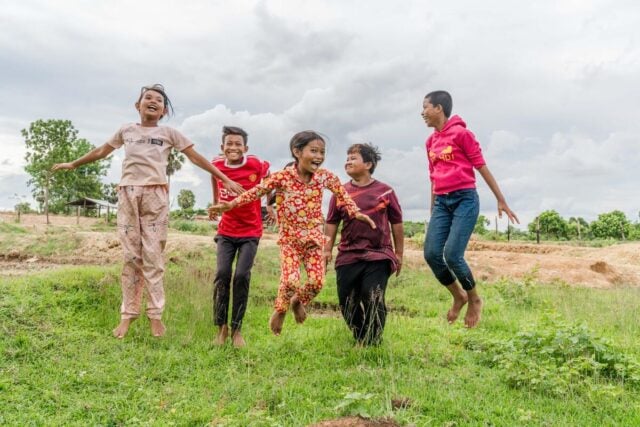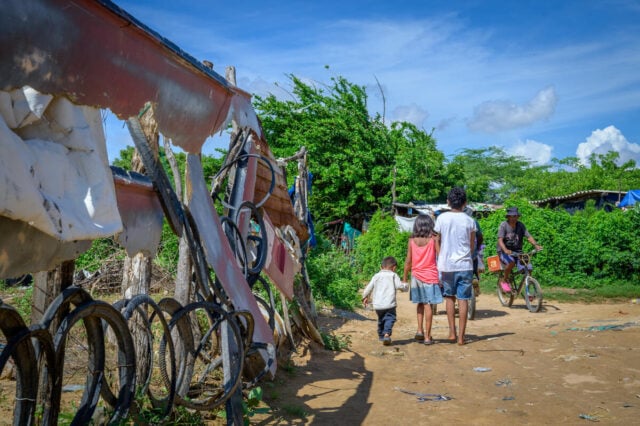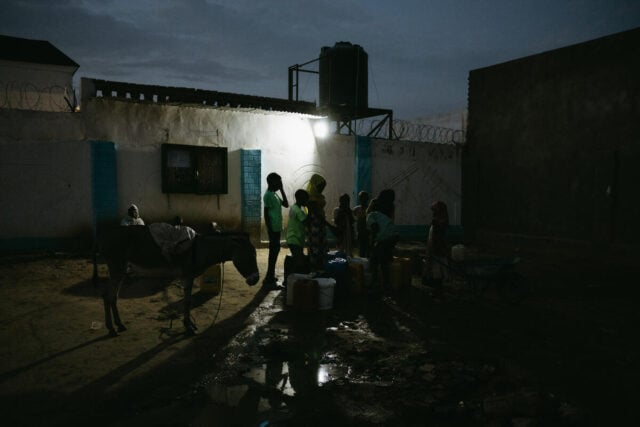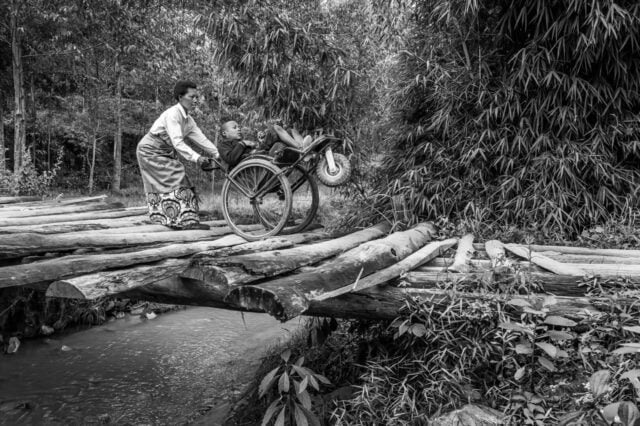To understand this remarkable story, first you need to know a little about the Maasai. For centuries, the Maasai traveled with their cattle along the Great Rift Valley in Kenya and Tanzania. Families were polygamous — men had many wives and kids. Children rarely went to school, instead helping their parents take care of animals and doing chores around the house.
This is the world into which Jackson Ole Sapit, 53, was born — with one father and 11 mothers. He’s not sure how many siblings he has but guesses more than 50. Jackson’s father died when he was young, and his mother — his father’s seventh wife — and her three children were chased away from the family home by shrewd older brothers who understood the value of land. Jackson’s mother and her children became destitute.
Maasai parents didn’t believe in education, as boys were to herd cows, and girls worked around the house. But in 1973, Jackson and the other Maasai boys in his village were forced to attend. There, he began to hear about Jesus. “One of the songs [they sang],” he says, “was ‘More About Jesus.’” But he thought they were singing “moo” instead of “more.” He says, “I wondered, ‘Are they singing about cows?’” This was something he could relate to as a herder; his curiosity was piqued.
Of Dust, a Seattle-based band comprised of World Vision U.S. staff members, sings “More about Jesus.”
The next year, Jackson became sponsored through World Vision. Through sponsorship, Jackson received his first pair of shoes along with shoe polish to keep them shiny. He loved the smell of the polish so much that he slept with it. He received all the benefits of sponsorship, including medical check-ups. And then, World Vision saved his family’s life.
“In 1976, there was a severe drought. People were on the food program,” he says. “[World Vision] used to bring white maize — better maize than anyone else, beans — no one else got beans — and cooking oil. Our food became the food for the entire family. Everybody benefited. It took us through the whole drought.”
When the rains came in 1977, World Vision helped the family grow their own food. “So again that became food for the entire family,” he says. “Every year, I got [school] uniforms and shoes. Even my sisters got presents at December.”
Jackson did well in his studies. “My teachers loved me,” he says. He loved school but felt he floundered during his final high school exams. Even though he finished in the top 10, he gave up on school and became a cattle trader, walking 10 days to Nairobi to sell cows.
It was during this period that he had an epiphany while resting in a forest with the cows, watching a spider rebuild its web. He realized how much he had been given, starting with World Vision sponsorship. He knew he needed to rebuild. “I went home singing,” he says, telling his mother: “I have seen God in an amazing way. He’s going to change my life.”
With the encouragement of an English missionary and a local pastor, Jackson became a priest. “The pastor said he wanted me to interview to start training to become the first Maasai pastor in the area,” he says. But there were two obstacles. “How would I speak in front of so many people?” he wondered. And a bigger fear: How would he officiate at funerals? “Maasai fear death,” he says. “The pastor is the one to conduct burials. I was afraid. How will I see dead bodies?” The pastor insisted, even giving him the money he needed for the interview. Jackson concocted a plan. “I said, ‘I will do it roughly so they won’t take me.’ I was so frank with them. That interested them. I was the first to be taken.”
In addition to the priesthood, Jackson worked for Tearfund, a development agency based in England. There he learned about development and running projects. He also studied at St. Paul’s Theological College and earned a master’s degree in development from the University of Reading in the U.K.
Upon his return from England, Jackson became a bishop. In 2016, he was elected as archbishop of Kenya. Again reluctant to take the position, “I said, ‘I can’t do this.’” Like Jonah, he says, he has resisted change at every turn, but he surrendered to God’s call when bishops all over Kenya texted him, urging him to take the position.
Today, the archbishop lives in Nairobi across the street from the state house where the president of Kenya lives. He has traveled to every county in Kenya preaching peace and has met with Salva Kiir, the president of South Sudan, imploring him to stop the civil war. Through his actions, his background shines: This is a man who combines theology and development in a way that puts God and people first.
He says his time as a sponsored child and experience with World Vision helped shape his vision for Kenya. “World Vision does community empowerment best,” he says. “We need to let people discover they are in relation to their environment, in relationship to God. They can envision their future, and World Vision can empower them.”
Jackson has now been married for 30 years to Esther. They have seven children who grew up hearing their father sing “‘Moo’ About Jesus.” Although life has led their father on a circuitous pathway from being a Maasai shepherd boy to leading 5 million Anglicans in Kenya, some things never change.



